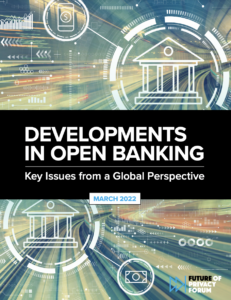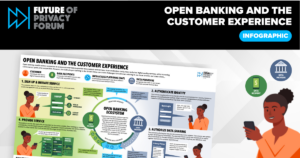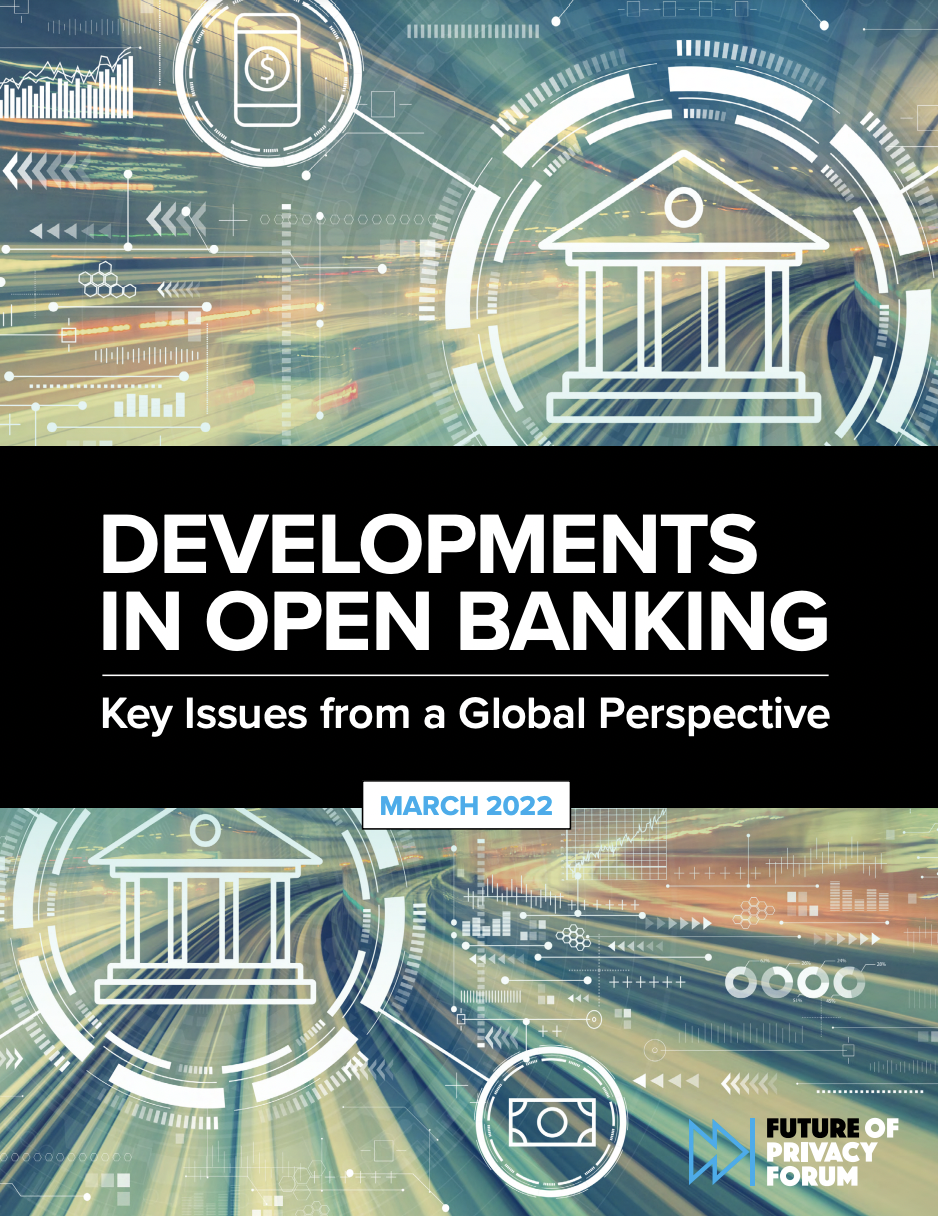The field of open banking refers to a data ecosystem in which data providers, such as banks and credit unions, send personal financial data to companies (e.g., fintechs) at a customer’s direction, in order to provide new products and services to the customer. Examples of these products and services include peer-to-peer payments, wealth management, and tax filing.
Open banking frameworks differ from country to country, but the interplay between open banking and data protection law raises important issues that all jurisdictions must address. Open banking can be a catalyst for greater competition by enabling new products and services that depend on the sharing of personal data. That sharing of personal data is integral to realizing these benefits presents privacy and security risks, including the risk of data breaches and unauthorized transactions. FPF works with a community of experts to identify the privacy and data protection risks in this space, educate policymakers about the challenges facing the open banking ecosystem, and develop best practices and policy recommendations.
Featured
FPF Report: Developments in Open Banking, Key Issues from a Global Perspective
Authors: Hunter Dorwart, Daniel Berrick, Lee Matheson, and Dale Rappaneau Dale Rappaneau was a former FPF Policy Intern. In FPF’s report, Developments in Open Banking, Key Issues from a Global Perspective, explores how ten different jurisdictions have approached open banking regulation, including questions related to privacy and data protection. The report was developed as part […]



